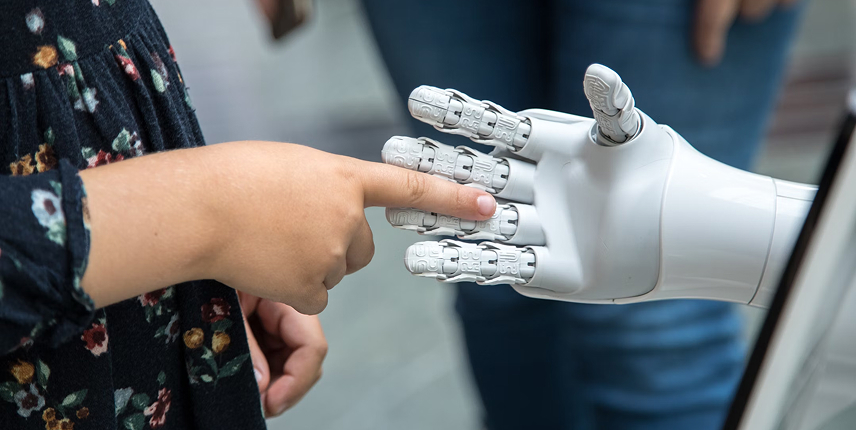Artificial Intelligence (AI) has rapidly evolved from a niche technological innovation to a ubiquitous force shaping modern society. From personalized recommendations on streaming platforms to autonomous vehicles navigating busy streets, AI increasingly influences everyday life. While AI offers remarkable convenience and efficiency, it also raises profound ethical questions. These concerns range from privacy violations and algorithmic bias to the broader societal impacts of automation and decision-making. Understanding the ethical implications of AI is essential to ensure that technological progress does not compromise fundamental human values.
Privacy and Data Security
One of the most immediate ethical concerns surrounding AI is privacy. AI systems rely on vast amounts of data to function effectively. Social media platforms, search engines, and e-commerce sites collect detailed user information to personalize experiences and predict behavior. While these services enhance user convenience, they also create ethical dilemmas regarding consent, data ownership, and surveillance.
Many AI-driven applications process sensitive personal information, such as location data, health records, and financial transactions. Unauthorized access or misuse of such data can have severe consequences, including identity theft, financial loss, and psychological harm. The Cambridge Analytica scandal, in which data from millions of Facebook users was exploited for political purposes, exemplifies the potential for abuse. Consequently, ethical AI development requires robust safeguards to protect privacy and ensure transparent data practices.
Algorithmic Bias and Fairness
Another critical ethical issue is algorithmic bias. AI systems learn from historical data, which often reflects societal inequalities and prejudices. For example, facial recognition technology has been shown to have higher error rates for individuals with darker skin tones, leading to concerns about discrimination in law enforcement and employment. Similarly, AI used in hiring or lending decisions may unintentionally favor certain demographic groups, perpetuating existing social disparities.
The ethical challenge lies in creating AI systems that are fair, transparent, and accountable. Developers must carefully consider the datasets used to train algorithms and implement mechanisms to detect and mitigate bias. Beyond technical solutions, there is also a need for legal and regulatory frameworks that hold organizations accountable for discriminatory outcomes. Ethical AI should not merely reflect societal norms but actively work to promote equity and justice.
Autonomy and Decision-Making
AI’s role in decision-making raises questions about human autonomy and accountability. Autonomous vehicles, for instance, rely on AI to make split-second decisions that can affect life and death. While self-driving cars promise to reduce accidents caused by human error, they also introduce ethical dilemmas: How should a car prioritize the lives of passengers versus pedestrians in unavoidable accident scenarios?
Similarly, AI systems increasingly influence decisions in healthcare, finance, and criminal justice. Algorithms can recommend medical treatments, approve loans, or determine sentencing. However, overreliance on AI may diminish human judgment, eroding accountability and reducing nuanced ethical reasoning to algorithmic calculations. Ensuring that AI complements rather than replaces human decision-making is a central ethical consideration.
Transparency and Explainability
Closely related to accountability is the issue of transparency. Many AI systems, particularly those based on deep learning, operate as “black boxes,” providing little insight into how they arrive at specific outcomes. This lack of explainability poses ethical challenges. Individuals affected by AI decisions—whether denied a loan, flagged for fraud, or subjected to predictive policing—have a right to understand the reasoning behind these outcomes.
Explainable AI (XAI) seeks to address this concern by making AI decision-making processes more interpretable. Ethical implementation of AI requires transparency not only for users but also for regulators and policymakers, enabling informed oversight and trust in AI systems. Without transparency, AI risks creating opaque power structures where decisions are dictated by algorithms rather than accountable human judgment.
Impact on Employment and Economic Inequality
AI’s integration into everyday life also has far-reaching implications for employment and economic equity. Automation has already transformed industries such as manufacturing, logistics, and customer service, displacing many traditional jobs while creating new opportunities in AI development and maintenance. However, the transition raises ethical questions about societal responsibility and the distribution of economic benefits.
Workers displaced by AI may face financial instability, skill obsolescence, and social marginalization. Ethical AI policies should address these challenges through reskilling programs, social safety nets, and equitable economic policies. Failure to consider the human impact of automation risks exacerbating inequality and social tension, undermining the broader societal benefits that AI promises.
Misinformation and Manipulation
AI technologies are increasingly used to generate and spread content, including deepfakes and algorithmically curated news feeds. While these tools have creative and practical applications, they also facilitate misinformation, manipulation, and erosion of public trust. AI-generated content can be used to deceive individuals, sway elections, or amplify harmful stereotypes.
The ethical implications of AI in information dissemination are profound. Developers and policymakers must ensure responsible use of generative technologies, implement content verification mechanisms, and educate the public about AI literacy. Ethical AI should prioritize truth, accountability, and the public good over commercial or political gain.
Ethical Frameworks and Regulation
Addressing the ethical challenges of AI requires a multifaceted approach. Technical solutions such as bias mitigation, privacy protection, and explainable algorithms are essential but insufficient on their own. Ethical AI also demands clear governance structures, legal frameworks, and international cooperation to establish norms and standards.
Several organizations and governments have begun developing AI ethics guidelines. Principles commonly emphasized include beneficence (AI should promote well-being), non-maleficence (AI should avoid harm), autonomy (respect human decision-making), justice (ensure fairness), and explicability (ensure transparency). Implementing these principles in practice requires ongoing dialogue among technologists, ethicists, policymakers, and civil society to navigate the complex trade-offs inherent in AI deployment.
Cultural and Social Considerations
AI ethics is not universal; it intersects with cultural, social, and political contexts. What constitutes ethical AI in one society may differ in another, reflecting diverse values and priorities. For example, approaches to privacy, surveillance, and individual rights vary widely across countries. Effective ethical frameworks must therefore balance global standards with local norms, ensuring that AI serves humanity in ways that are both culturally sensitive and universally just.
Conclusion
Artificial Intelligence is no longer a futuristic concept—it is an integral part of everyday life, shaping how we work, communicate, and make decisions. While AI offers extraordinary benefits, it also presents significant ethical challenges. Privacy violations, algorithmic bias, diminished human autonomy, lack of transparency, economic disruption, and misinformation are just some of the pressing concerns.
Addressing these ethical implications requires a comprehensive approach that combines technological innovation with robust governance, regulation, and public engagement. AI should be designed not only for efficiency and profit but also for fairness, accountability, and human dignity. By proactively confronting ethical dilemmas, society can harness AI’s potential while safeguarding the values that underpin a just and equitable world.
In the end, the question is not whether AI will change our lives—it already has. The real ethical challenge is whether we will guide that change responsibly, ensuring that AI serves as a tool for human flourishing rather than a force that undermines it.


